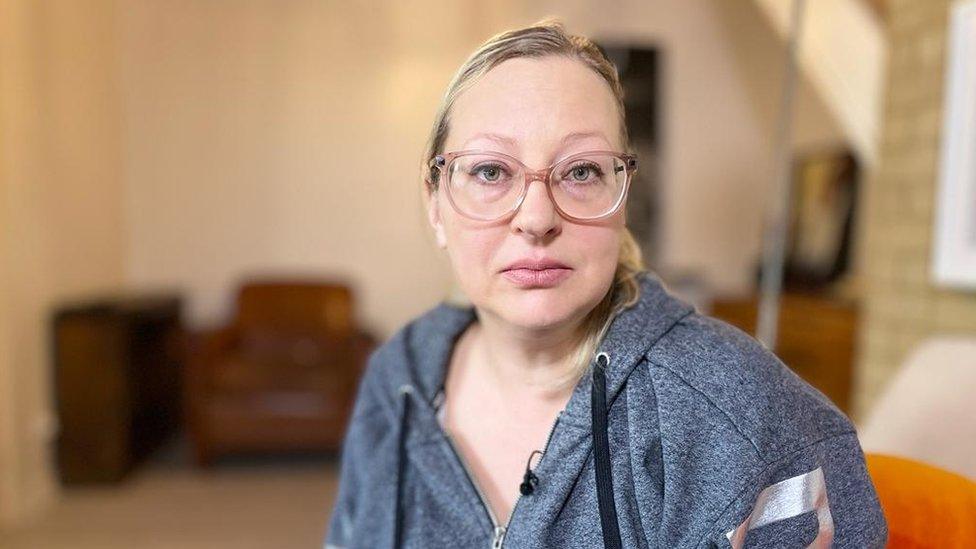Cheltenham to Ukraine: Ambulances prepare to help refugees
- Published
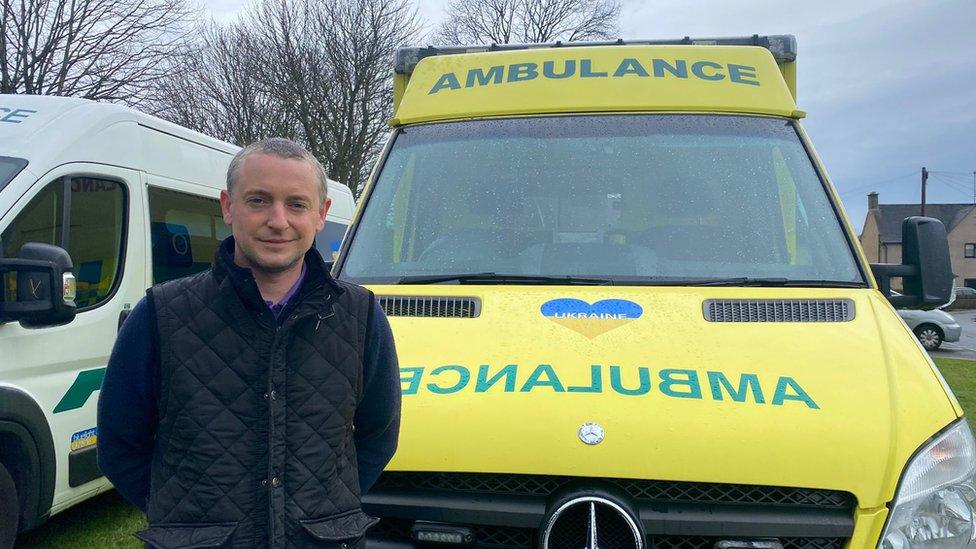
Mr El Mayet had initially hoped to send four vehicles
A fleet of seven ambulances are preparing to leave Cheltenham, bound for war-torn Ukraine.
The former NHS vehicles are to be driven by volunteers and the vehicles will be filled with medical supplies.
Management consultant Khaled El Mayet, from Cheltenham, organised the convoy which he will hand to paramedics on the Polish-Ukrainian border on Monday.
"When you see what's happening to children and the elderly, it spurred me to help," said Mr El Mayet, 38.
Mr El Mayet originally planned to raise money for four ambulances but ended up with seven after his fundraiser took off.
He was even recognised for his efforts in a recent speech by the US Secretary of State Antony Blinken - though he said he had no idea how Mr Blinken came to hear about his work.
Allow X content?
This article contains content provided by X. We ask for your permission before anything is loaded, as they may be using cookies and other technologies. You may want to read X’s cookie policy, external and privacy policy, external before accepting. To view this content choose ‘accept and continue’.
The five NHS ambulances and two patient transporters will set off on Monday.
"This has taken over my life," said Mr El Mayet.
"We're lucky to get two or three hours of sleep because of this project.
"When something like this happens, ambulances are vital."
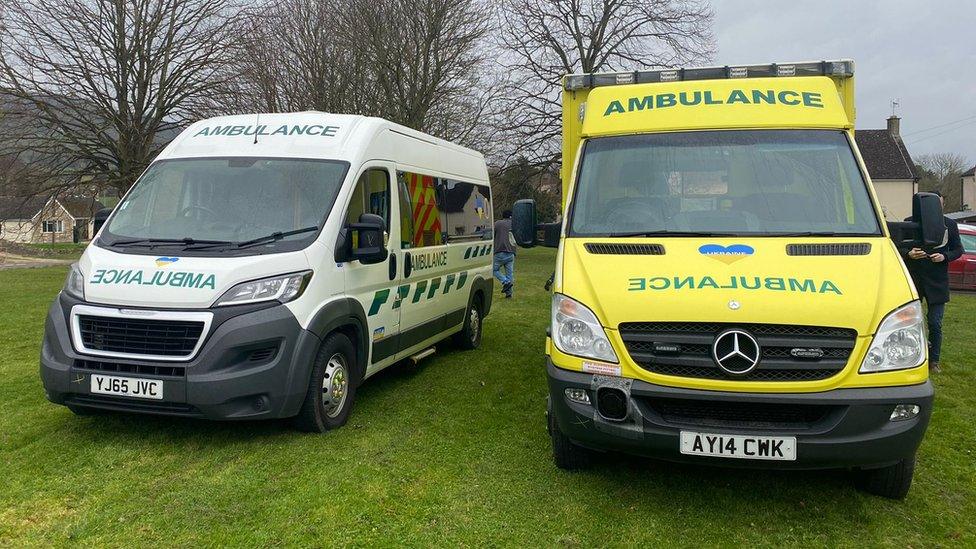
The ambulances are considered too old for the NHS to use
Mr El Mayet last organised a project on this scale during the Arab Spring uprising of 2011, where he heard that one of his ambulances saved the life of a shrapnel victim.
"This is something that really will help," he said.
"With every day that goes by there will be more and more lives lost.
"I want to thank everyone who has donated and chipped in for these ambulances," he added.
"It represents a massive collective effort."

Follow BBC West on Facebook, external, Twitter, external and Instagram, external. Send your story ideas to: bristol@bbc.co.uk , external
Related topics
- Published11 March 2022
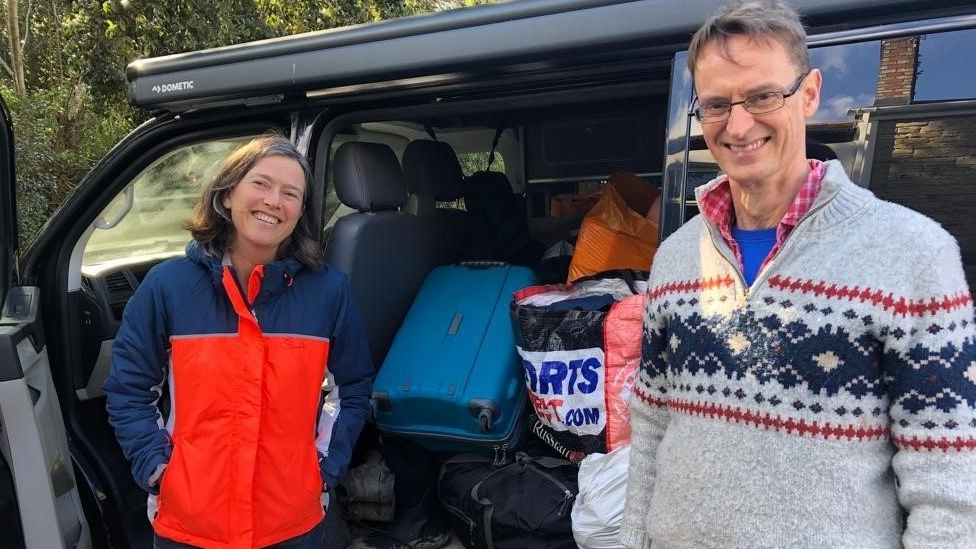
- Published11 March 2022
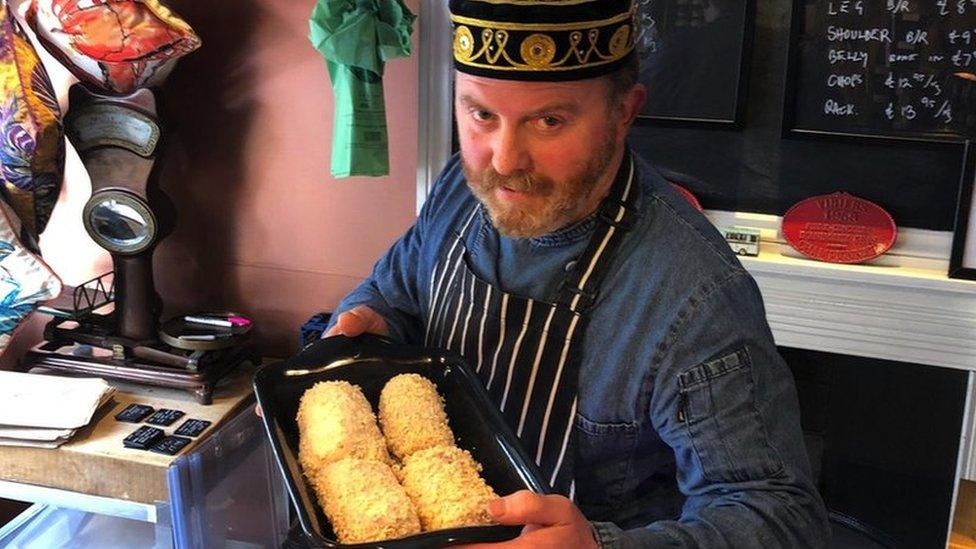
- Published10 March 2022
